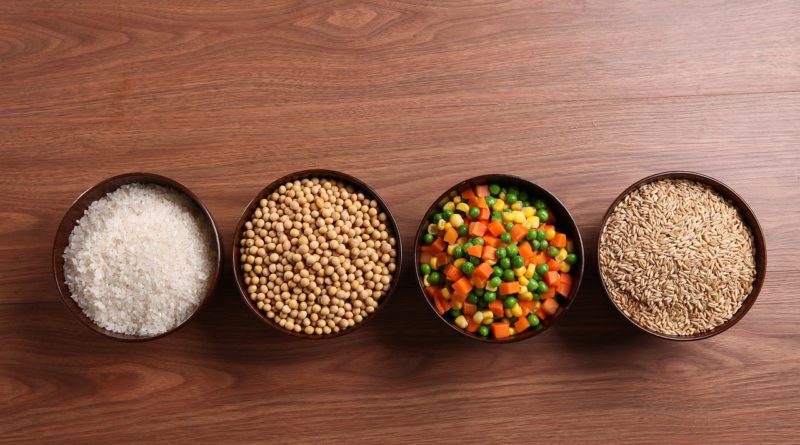Breathe better knowing which foods to reach for and which to avoid.
Asthma is a chronic condition where the airway becomes inflamed, making breathing more difficult. One in 13 people in the U.S. suffer from some form of the condition.1
While it may seem unrelated, food plays an important role in asthma management.
Since asthma involves inflammatory processes, foods that impact inflammation may trigger symptoms and influence the severity of asthma attacks in some people. Allergic reactions to various foods can also trigger asthma symptoms. Nutrients including vitamins C, D, and E, as well as selenium, fiber, and certain types of fats, can all play a role in asthma management.2
Best Foods for Asthma
Carrots
Rich in beta-carotene and vitamin C, carrots contain inflammation-fighting antioxidants that can help protect the airway from damage. Vitamin C plays an important role in protecting respiratory cells and fluids from oxidative stress and damage.
Use carrots in salads, smoothies, and cold pressed juices. They can also be roasted and grilled – quick cooking will ensure they keep some crunch and preserve more of the vitamin C carrots contain.
Citrus
Vitamin C rich oranges, lemons, limes, and grapefruit are a fresh and accessible way to brighten up both sweet and savory recipes. The high water content of citrus fruits can also help contribute to hydration, which has also been shown to reduce exercise-induced asthma attacks.3
Almonds
Reach for a handful of vitamin E from almonds to help protect the delicate membranes of the respiratory system.4 One ounce of almonds contains 45% of the daily recommendation for vitamin E.
Salmon
If you have asthma, the fats you consume can make a huge difference. The inflammation-fighting power of omega-3 fats in salmon is just one of the many reasons to eat more of this healthy, fatty fish.5
Walnuts
Walnuts are yet another stellar source of omega-3 fats, which play a role in protecting the respiratory system from excessive amounts of inflammation.67 This plant-based option can be incorporated into cereal, oat bowls, smoothies, granola, salads, and baked goods.
Sardines
Sardines contain high amounts of selenium, a mineral with cell-protecting, antioxidant properties. There is some evidence to suggest that people with asthma can benefit from more selenium in their daily diets, as selenium has been found to help control airway inflammation as well as reduce airway mucus secretion, especially when combined with vitamin E.8
Three ounces of sardines contain 82% of the daily value.
Oats
A happy gut can help lung function.9 Promote healthy gut bacteria by eating soluble fiber from oats. Sweet and savory oatmeal and granola are just a few of the ways to enjoy this whole grain.
Foods to Avoid With Asthma
Some foods can make asthma worse due to their ability to elicit allergic reactions. Steering clear of these foods may help control symptoms. Other foods perpetuate inflammation, which can also negatively impact asthma status.
Peanuts and Tree Nuts
These are two of the most common allergens, especially in children.10 Check food labels carefully to best determine which foods many contain or are processed in a facility with peanuts and tree nuts. Those without diagnosed allergies can enjoy these nuts as a healthy way to get healthy fats and fiber.
Processed Meats
Large amounts of foods high in saturated fat, including processed meats like sausage, bacon, and salami, can trigger excessive inflammation throughout the body, including the lungs.11 Enjoy these foods in moderation and focus on lean meats, poultry, and fish to optimize protein intake.
Dairy
The evidence is mixed on whether dairy products, including milk, yogurt, and cheese, can aggravate asthma. Milk is a common allergen, but some data also suggests dairy in the absence of allergies can lead to lung issues.2
Sulfites
Wine drinkers can often reap the benefits of antioxidants found in red wine, but the sulfites also found in your glass may flare asthma. While the cause is unclear, sulfite sensitivity occurs in 3%-10% of people with asthma, studies suggest. Sulfites can also be found as a food preservative and in some forms of medications.12
When to See a Healthcare Provider
Asthma and diet is a complex subject requiring individualized care. Work with your primary care doctor and specialists, including allergists and registered dietitian nutritionists, to figure out a personalized plan.
Recap
Eating well for asthma doesn’t have to be complicated. Plus, many of the best foods for asthma have other health benefits.
Fruits, vegetables, and whole grains are plentiful in cell-protecting and inflammation-fighting antioxidants, which help protect the respiratory system from damage and swelling. Nuts and fatty fish provide additional protection against inflammation. Avoiding large amounts of processed meats, sulfites, and foods that pose a high risk of allergic reaction in those who are susceptible can help control asthma symptoms and reduce asthma triggers.
Source: https://www.health.com/condition/asthma/foods-for-your-lungs

